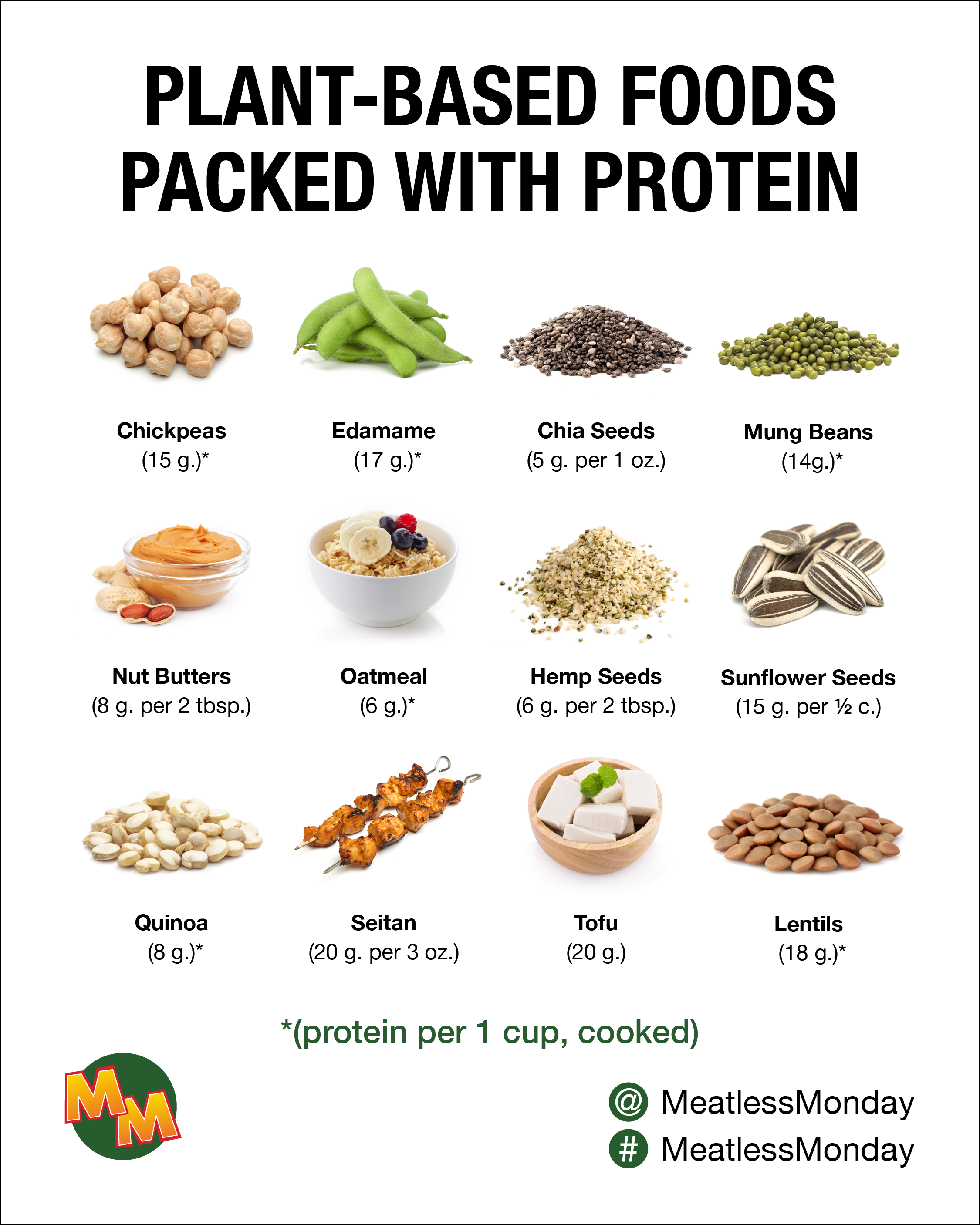7 Flavor-Packed BBQ Sauces That Are Perfect for Meatless Grilling
Everything About Healthy Food: Advantages of Embracing Plant Based Options
The discussion surrounding plant-based diets has actually obtained substantial focus in current years. Many people are discovering the possible wellness advantages, dietary advantages, and environmental impacts associated with these nutritional selections. As people become more knowledgeable about their food's impact on wellness and sustainability, questions emerge concerning the functionalities of embracing such a lifestyle. What details modifications can one expect, and just how might these options improve not only individual health but additionally the world's future?
Understanding Plant-Based Diet Regimens
Many individuals associate plant-based diet plans mainly with vegetarianism or veganism, these diet plans can encompass a broad range of consuming patterns that prioritize entire, minimally processed plant foods. Such diet plans typically consist of fruits, vegetables, entire grains, vegetables, seeds, and nuts, while restricting or eliminating animal products. This adaptability allows individuals to customize their dietary options according to personal preferences and dietary demands. Some might take on a largely plant-based diet while still occasionally consuming meat or dairy products, frequently referred to as a flexitarian strategy. The focus remains on integrating even more plant foods, which can lead to a diverse variety of dishes and tastes. Understanding these different analyses of plant-based consuming is important for appreciating its access and allure in contemporary food culture.
Health Benefits of Plant-Based Foods
The health benefits of plant-based foods are considerable, using a nutrient thickness benefit that sustains general wellness. Study shows that these foods can boost heart wellness and play an essential role in efficient weight administration. By integrating a lot more plant-based choices, people may improve their dietary choices and promote long-term health.
Nutrient Density Benefit
Nutrient thickness plays a crucial duty in the wellness advantages of plant-based foods, making them a compelling choice for those seeking a well balanced diet regimen. Plant-based foods, such as fruits, veggies, vegetables, nuts, and whole grains, are typically rich in important vitamins, minerals, and antioxidants while being reduced in calories. This high nutrient thickness enables individuals to eat less calories while still satisfying their nutritional demands. In addition, these foods are loaded with dietary fiber, promoting gastrointestinal health and helping in weight management. By including nutrient-dense plant-based options, customers can boost their general health, sustain their immune systems, and decrease the threat of persistent diseases. Inevitably, the nutrient thickness of plant-based foods underscores their importance in a health-conscious way of life.
Heart Health Renovation

Weight Administration Support
Along with promoting heart health, a plant-based diet regimen can significantly assist in weight administration. This nutritional technique highlights whole foods such as fruits, veggies, vegetables, nuts, and whole grains, which are typically lower in calories and higher in fiber contrasted to animal-based items. The high fiber content aids enhance satiety, reducing total calorie intake. Plant-based diet plans are usually abundant in vital nutrients while reduced in harmful fats, making it simpler to maintain a healthy weight. Research study indicates that individuals who embrace a plant-based way of living often tend to have lower body mass indexes (BMIs) and experience more successful weight loss contrasted to those who consume meat-heavy diet plans. Embracing plant-based alternatives is a strategic option for reliable weight administration.
Nutritional Worth of Plant-Based Components
Plant-based ingredients are abundant in vital nutrients, providing a varied range of vitamins, minerals, and anti-oxidants that contribute to general health. A comparison of healthy protein sources discloses that while pet items are frequently seen as premium, many plant-based options supply appropriate healthy protein and other advantageous substances. Understanding the nutritional worth of these active ingredients can help individuals make informed nutritional selections.
Important Nutrients in Plants
Nutrient-rich components located in plants use a diverse range of essential vitamins and minerals that contribute greatly to total health and wellness. These active ingredients are abundant in vitamins A, C, and K, which support immune function, vision, and blood clot, specifically. In addition, plants give vital minerals such as potassium, calcium, and magnesium, essential for heart health, muscle feature, and bone strength. The existence of fiber in plant-based foods help digestion and advertises a healthy intestine microbiome. Antioxidants, found abundantly in fruits and veggies, aid battle oxidative anxiety and decrease swelling. Additionally, many plant foods are reduced in calories yet high in nutrients, making them a superb option for those looking for to preserve a healthy and balanced weight while ensuring ideal nutrient consumption.
Comparing Protein Sources
Healthy protein resources vary considerably in their visit the site dietary accounts, with plant-based active ingredients using special advantages. Unlike animal healthy proteins, which usually have hydrogenated fats and cholesterol, plant healthy proteins have a tendency to be lower in these harmful elements. Legumes, nuts, seeds, and whole grains are abundant in crucial amino acids, fiber, vitamins, and minerals. For instance, lentils give high healthy protein material alongside substantial iron and folate, while quinoa is a total protein, supplying all 9 vital amino acids. Furthermore, plant-based proteins are commonly gone along with by antioxidants and phytochemicals that sustain overall wellness. The shift to plant-based healthy protein sources not just enhances dietary intake but also lines up with lasting dietary techniques, decreasing ecological impact and advertising long-term health advantages.
Environmental Influence of Plant-Based Eating
As recognition of environment change expands, many individuals are discovering lasting dietary choices that can significantly decrease their ecological impact. Plant-based eating has arised as a significant factor to decreasing greenhouse gas emissions, which are mostly associated with animals manufacturing. The growing of fruits, legumes, grains, and veggies typically needs less sources, such as water and land, compared to pet farming. In addition, plant-based diets can result in reduced deforestation, as less land is needed for grazing animals or expanding pet feed. By shifting towards plant-based choices, customers can sustain biodiversity and promote much healthier communities. Generally, welcoming plant-based consuming not just benefits personal health but also represents a vital step toward environmental sustainability and conservation efforts.
Overcoming Common Misconceptions
While lots of people acknowledge the benefits of a plant-based diet plan, a number of false impressions often deter them from totally welcoming this lifestyle. A common idea is that plant-based diets lack enough healthy protein; nonetheless, countless plant resources, such as vegetables, nuts, and tofu, supply adequate protein. Additionally, some assume that this diet regimen is costly, when in truth, staples like beans, rice, and seasonal vegetables can be quite economical. Another mistaken belief is that plant-based consuming is excessively restrictive, whereas it in fact uses a varied variety of tastes and foods. Several fret that a plant-based diet plan might lead to deficiencies, yet with proper preparation, individuals can obtain all necessary nutrients, consisting of minerals and vitamins, while delighting in a vast range of scrumptious dishes. Broad Tips for Transitioning to a Plant-Based Way of life
Making the change to a plant-based lifestyle can be an enhancing experience, though it often needs some advice to navigate the first changes. Individuals are motivated to begin gradually, including even more fruits, vegetables, beans, and entire grains right into their dishes while minimizing meat and dairy consumption. Meal preparation is important; preparing an once a week menu can assist alleviate the adjustment and prevent last-minute unhealthy options. Discovering cooking methods and new recipes can likewise boost the experience and maintain enjoyment concerning plant-based consuming. Additionally, joining support groups or neighborhoods can supply inspiration and share important ideas. Ultimately, remaining educated regarding nutrition assurances balanced meals, stopping deficiencies while fostering a healthy, satisfying plant-based lifestyle.
Delicious Plant-Based Dish Ideas
Exploring scrumptious plant-based meal ideas can motivate people to embrace a more healthy diet plan. One preferred option is a hearty quinoa salad, including cherry tomatoes, cucumber, and a zesty lemon-tahini dressing. One more fave is a savory lentil stew, loaded with carrots, celery, and great smelling herbs, ideal for a calming supper. For breakfast, overnight oats made with almond milk, chia seeds, and topped with fresh berries supply a nourishing start to the day. In addition, a vivid vegetable stir-fry with tofu and a variety of vibrant veggies can be a quick yet pleasing dish. Ultimately, luscious avocado toast on whole-grain bread, sprinkled with seeds and flavors, uses a straightforward yet flavorful snack. These dishes display the selection and go to website richness of plant-based consuming.

Regularly Asked Concerns
Can a Plant-Based Diet Provide Enough Healthy Protein?
The concern of whether a plant-based diet can give adequate protein is common. Countless sources, including vegetables, nuts, seeds, and whole grains, can meet protein requires efficiently, sustaining a balanced and nourishing diet for people.
Are Plant-Based Diets Appropriate for Children?
The suitability of plant-based diet plans for children depends upon mindful planning. Adequate nutrients need to be ensured, including proteins, vitamins, and minerals. With proper assistance, such diets can sustain healthy and balanced development and growth in kids.
How Do I Eat Out on a Plant-Based Diet?
Eating in restaurants on a plant-based diet entails seeking dining establishments with diverse menus, requesting for alterations, and checking out vegan-friendly options. Preparation in advance and communicating nutritional choices can improve the eating experience while keeping dietary choices.
What Are Typical Allergens in Plant-Based Foods?
Usual irritants in plant-based foods include soy, gluten, nuts, and seeds - Plant Based Beef. Individuals adhering to a plant-based diet plan ought to know these allergens and read tags meticulously to stay clear of negative responses and guarantee risk-free consumption
Can Plant-Based Diets Aid With Weight-loss?
Research study shows that embracing a plant-based diet plan may facilitate weight reduction because of its usually lower calorie thickness and higher fiber content. This mix can boost satiation, helping people manage their calorie consumption properly. Several people link plant-based diet plans mainly with vegetarianism or veganism, these diet plans can include a wide range of eating patterns that focus on entire, minimally processed plant foods. Nutrient density check my source plays a necessary role in the wellness benefits of plant-based foods, making them an engaging choice for those looking for a well balanced diet. Plant-based diets have been shown to noticeably boost heart health, as they often include aspects that support cardiovascular feature. In enhancement to advertising heart health and wellness, a plant-based diet plan can significantly help in weight management. A typical idea is that plant-based diet plans lack adequate protein; nonetheless, various plant sources, such as beans, nuts, and tofu, provide enough protein.